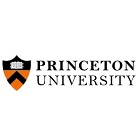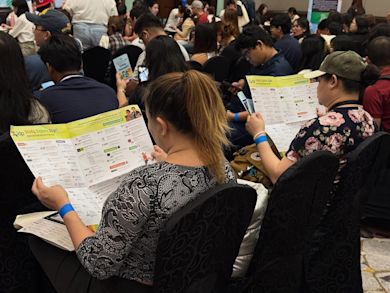Why Study in the USA, the Land of Opportunities
Published: 5 November 2025
The United States (US) is a global magnet for international students seeking a world-class education and a truly diverse cultural experience. The country is home to renowned universities known for their strong academic programs and commitment to educational excellence, consistently ranking highly across global standards for quality teaching, groundbreaking research, and innovation.
The USA also has the most international students of all countries in the world, as international students are welcomed with open arms by all American universities. This popularity is rooted in the country's exceptional higher education institutions, cutting-edge research facilities, and the dynamic environment that fosters innovation and creativity.
Being in classrooms full of foreign students from different parts of the world allows you to experience a stimulating and rich learning environment that encourages cross-cultural understanding and networking. Studying in the USA also offers a unique journey for your academic and personal growth, exposing you to renowned universities, iconic cities, cultural diversity, and extensive opportunities.
The American education system
The American education system is recognized all over the world. They are at the forefront of scientific and creative innovation. Large research institutions in the US offer opportunities for students to work side-by-side with their professors and apply what they are learning in the classroom to the lab or workshop. US universities proudly support the fieldwork their faculty members are doing, and information is readily available on research opportunities for students.
The US higher education system is known for its rigorous academic standards and innovative teaching methods. Whether pursuing undergraduate, graduate, or doctoral programs, students benefit from a broad spectrum of disciplines, allowing them to explore their interests while gaining valuable skills.
US higher education institutions place great importance on diversity, which means classes are made up of students of different ages, religions, and nationalities. This provides a stimulating and rich learning environment that encourages cross-cultural understanding and networking. Classes are usually interactive, which encourages critical thinking and sharing with the class, which can help build up a student's confidence in public speaking, too.
Because the American education system focuses on practical learning that encourages creative, independent thought and debate, it’s a favourite destination to study abroad.
Top universities in the USA
If you are looking to pursue a foundation, undergraduate, or postgraduate pathway in the USA, the top university rankings can give you an idea if an institution is right for you. US institutions consistently rank highly across all ranking systems, such as the Quacquarelli Symonds (QS) World University Rankings and Times Higher Education World (THE) University Rankings.
A total of 20 US universities rank within the top 70 positions in QS, with 4 of them in the top 10. There are also 20 US universities ranking within the top 40 positions in THE, with 7 of them included in the top 10 positions.
This goes to show that US university standards are highly regarded across the board, making the USA one of the top destinations for international students looking to study abroad.
You can explore a full list of top universities in the USA that continue to attract Filipino students seeking quality education and global exposure.
USA upcoming intakes
When studying in American universities, international students have the flexibility of choosing from multiple intakes every academic year. These intakes, often called "terms" by some institutions, dictate when students begin their academic journey.
Fall intake: August to December
The Fall intake is the primary and most popular intake for international students in the US. Most programs across universities start in this period, offering the widest choice of courses. It is also aligned with the current academic calendar followed by universities in the Philippines.
Applications for the Fall intake are typically due between December of the previous year and February, with Early Action or Early Decision deadlines in October or November of the previous year. This intake provides a fully active campus life, with orientation programs, extracurricular activities, and internships aligned with the academic calendar.
Spring intake: January to May
The Spring intake is an ideal option for students who may have missed the Fall intake or prefer to start later in the academic year. Applications are generally due between August and October of the previous year. While fewer programs are available and campus life is quieter compared to Fall, Spring intake can be advantageous due to lower competition, giving international students a better chance of admission. Some co-op or internship opportunities may also be limited for Spring starters.
Summer intake: May to August
The Summer intake is primarily for short courses, certain graduate programs, or English language studies, with application deadlines usually between January and March. Program options are limited, and campus activity is quieter due to the academic break. This intake is suitable for students looking for focused short-term studies or specific programs not offered in Fall or Spring. As a Filipino student, you should consider this intake only if your chosen course is available and aligns with your study and career plans.
Choosing the right intake period
Usually, Filipino students choose an intake based on a range of factors, such as preferred choice of study, the availability of a study program in a particular university, and academic records.
Don't let the different intake periods be your main deciding factor. If you are unsure about which term to choose from, an admission counselor, such as one from IDP, can walk you through the process to select the most appropriate option for you.
USA Universities Admission and Eligibility Requirements for Filipino students
Filipino students who wish to study in the United States must meet specific academic and English language requirements, which vary by university and level of study. For undergraduate programs, students generally need to have completed Senior High School (Grade 12) under the K–12 education system or an equivalent qualification.
Some universities may require completion of a foundation program or diploma to meet academic entry standards. Some institutions may also require SAT or ACT scores, although many are now test-optional. For postgraduate programs, you must hold a relevant bachelor’s degree from a recognized institution, and certain programs may request GMAT or GRE results, especially for business or research-based fields.
Foreign students will also need to demonstrate English language proficiency through tests such as IELTS, with most US universities accepting an IELTS score between 6.0 and 7.0.
Admission Process for Filipino Students Applying to US Universities
Once you have researched and shortlisted your preferred institutions and programs based on academic goals, budget, and eligibility, you can begin your submission through the Common Application, the Coalition Application, directly via the university’s own portal, or via an authorized education agency such as IDP.
Required documents generally include academic transcripts, standardized test scores, English proficiency test results, recommendation letters, a personal statement or essay, and proof of financial support. Some competitive programs may also require portfolios, interviews, or supplementary essays.
After submitting your application, successful applicants will receive a letter of acceptance from their chosen institution. With this, you can proceed to apply for your F-1 student visa by obtaining an I-20 form from the university. Once your visa is approved, you can start arranging accommodation, booking flights, and attending pre-departure briefings like those hosted by IDP to prepare for your study journey in the United States.
USA Student Visa Requirements for Filipino Students
Filipino students who plan to study in the United States must obtain a valid US student visa before traveling. The most common type of student visa is the F-1 visa for academic studies. To be eligible, there are student visa requirements that need to be met. For example, you must be enrolled in a program or course of study that leads to a degree, diploma, or certificate, and the school must be authorized by the U.S. government to accept international students. The F-1 visa also allows for certain types of part-time on-campus employment.
Apart from the F-1 visa, there are a few other types of student visas, such as the J visa (usually for exchange visitors) and the M visa (usually for vocational students), so it is essential to apply for the most suitable type of student visa according to your study needs.
There are many steps involved in obtaining a USA student visa, and it is recommended to check the US Department of State website for the latest updates, or check out our step-by-step guide on getting a US study visa. Do start the visa application process early to sort out your documents and to avoid delays, ensuring a smooth transition to your studies in the US. Your IDP counselor can also help you access the latest student visa requirements and connect you with authorized migration experts.
Explore in USA
Hover over the city cards to discover more!
Cost of studying in the USA for Filipino students
The cost of studying in the USA can be an expensive affair. Before departure, it can be helpful to do your due diligence in budget and cost preparations before moving to the United States.
As a rough estimate, depending on the type of course and university, the average annual tuition fee for undergraduate study programs will cost anywhere between US$20,000 and US$40,000 per year. For postgraduate degrees, it can cost between US$20,000 and US$45,000 per year.
In addition, other typical study expenses for international students include study visa fees, accommodation costs, health insurance, and study materials. Having a well-structured budget that accounts for all miscellaneous expenses before you depart will help you manage your finances more effectively and make the most of your study experience in the USA.
USA scholarship & financial aid options for Filipino students
The United States is a magnet for international students from all over the world. However, due to the higher cost of studying in the USA, many students hold back when considering whether to study in the USA eventually.
Filipino students seeking to finance their education in the US can consider the wide range of scholarships and financial aid available to them from universities and the US government. These scholarships can cover tuition fees, living and travel expenses, and daily allowances (depending on the program) to help make your American college dream a reality.
Typically, scholarships are usually merit-based, needs-based, and country-specific scholarships for international students that recognize academic excellence and leadership potential.
For Filipino students planning to study in the US, securing a scholarship is key! This makes your overseas education both affordable and rewarding. Before applying to any of these American scholarships, check the eligibility requirements and criteria, along with the closing date.
Cost of living in the USA for international students
In addition to the cost of studying, Filipino students should also consider the general cost of living in the USA, which can vary greatly depending on location. Everyday living expenses such as groceries, dining, phone and internet bills, transportation, and leisure activities can add up quickly, especially in major cities like New York, Los Angeles, or San Francisco, where living costs are generally higher. On the other hand, studying in smaller cities or towns can be more budget-friendly without compromising on the quality of education.
Comparing living expenses and costs between the different US cities and what you’re used to in the Philippines can help you create a realistic budget and understand if further financial aid is required. It can also help you make informed choices about where to live and study for the best overall experience.
Post-graduate work visa and career opportunities for Filipino students
Completing your bachelor's degree in the USA offers a multitude of opportunities for personal and professional growth. The country's open job market allows international students to gain practical experience during and after their studies.
For example, international students such as Filipino students have excellent opportunities with the Optional Practical Training (OPT) program*. Optional Practical Training allows Filipino students on an F-1 visa to work in the US for up to 12 months after completing their studies, while those with degrees in STEM fields (Science, Technology, Engineering, and Mathematics) may qualify for a 24-month extension, totaling 36 months of work authorization.
This valuable experience and practical training can help graduates apply their academic knowledge in real-world settings and can enhance their global career prospects. Many students also use this time to explore longer-term career opportunities or potential sponsorship options in the US workforce.
*Please note that IDP does not provide post-study work visas for students.
Live life in the FastLane
Want to check if you're eligible to study in the USA? IDP’s FastLane service can fast-track your application process with the universities and help you receive an offer two to three times faster than others.
This special IDP feature will guide you to programs most suited for you, based on your goals and preferences. Enter your preferences to discover and shortlist courses to study in the USA that align with your aspirations. Provide your academic details and you’re all set to receive a response from a university in just seconds!
View FastLane-enabled universities to fast-track your USA study journey today.
Next steps for Filipino students to study abroad in the USA
Studying in the USA is more than an academic pursuit. It is an opportunity to explore, grow, and make lifelong memories. Students cultivate critical thinking, problem-solving, and communication skills, setting a strong foundation for lifelong learning and career advancement. The diverse environment also encourages adaptability, resilience, and an open mindset – qualities highly valued in today's globalized world.
Whether you're drawn by the allure of iconic cities, cutting-edge research, or a multicultural community, the USA has much to offer. So, if you're looking for an education that transcends borders and empowers you for the future, the land of opportunity beckons.
Speak with an IDP counselor today to explore your options and begin your journey towards studying in the USA.

Send funds securely with money transfer
Explore safe, convenient and fast payment solutions with our market leading partners.

Find your home away from home
We’ll help you discover student accommodation that makes you feel comfortable and at home, no matter where you are.
Cost of living calculator
Estimate how much you will need to cover your expenses including cost of living comparison for various country and accommodation options.
Can’t decide where to study?
Answer 5 quick questions to get personalised content and course recommendations



















